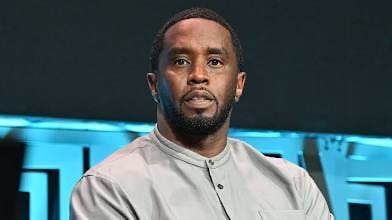What the P. Diddy Case Teaches Us as Parents
When a public figure like Sean “Diddy” Combs is convicted—even partially—it sparks more than headlines. It forces parents to reflect on influence, power, and how we talk to our kids about harm, accountability, and integrity. In this post, we break down what the verdict means, how to approach it at home, and why raising media-literate kids matters now more than ever.
OTHER
7/2/20252 min read


When headlines broke last year about Sean “P. Diddy” Combs’ legal troubles, many of us were shocked—and many of us weren’t.
Today, he was convicted—but not of everything.
According to Court TV, he was acquitted of the most serious charges, including trafficking, but found guilty on lesser counts. He won’t face a life sentence.
That detail matters—especially for those of us trying to make sense of what’s true, what still feels unresolved, and how to talk to our kids about it.
The Bigger Picture
Whether you followed Diddy during his Bad Boy Records era, his fashion lines, or his reality TV presence, his influence spanned decades. He helped shape pop culture. He built a brand on power, success, and visibility.
But the last few months have brought something else: disturbing video footage, multiple civil lawsuits, and now, a mixed verdict that confirms some wrongdoing—without fully closing the case.
Why This Matters as a Parent
Our kids are growing up in a world that glorifies image, influence, and “being a boss.”
This is our reminder:
Fame doesn’t make someone safe.
Money doesn’t erase accountability.
Success doesn’t equal character.
Even if your kids don’t know who Diddy is, they’re still being shaped by the culture that made him a household name. This is a chance to push back against that influence—with facts, values, and real conversation.
How to Talk to Your Kids About It
You don’t need to go into the legal weeds. But you can use this moment to bring up bigger themes—simply, honestly, and age-appropriately:
“A celebrity some people admire was just convicted of hurting others. He wasn’t found guilty of everything, but he did do harm. That matters.”
“Famous people can still make really bad choices. Being rich or talented doesn’t excuse that.”
“If someone makes you feel unsafe, it’s always okay to speak up—no matter who they are.”
These don’t have to be long or intense conversations. But they do need to happen—especially in a world where our kids see headlines before they understand them.
It’s Okay to Feel Conflicted
Maybe you loved his music. Maybe you admired his hustle. Maybe you looked the other way for too long.
That’s real.
It’s okay to feel disappointed, angry, or unsettled. It’s also okay to outgrow people.
To say: I used to look up to this person—but now I know better.
And to help our kids learn how to say that too.
The Bottom Line
This isn’t just about Sean Combs. It’s about how we talk about power, harm, and accountability at home.
So yes, acknowledge the verdict if it comes up. But more importantly, talk about:
How we treat others
Why respect matters
What it means to listen, believe, and choose better
That’s how we raise kids who think deeper than the headline.
Explore More
Follow Our Journey
Motherhood, wellness, and lifestyle tips for busy moms.
Join our growing community
© 2024 MamaLuxeLife. All rights reserved.
